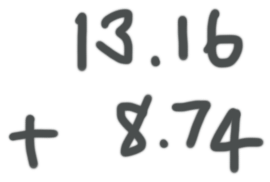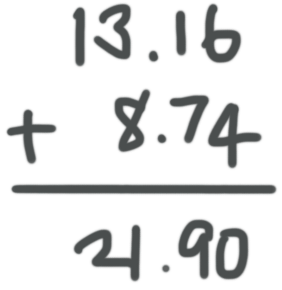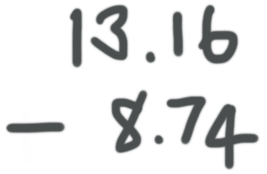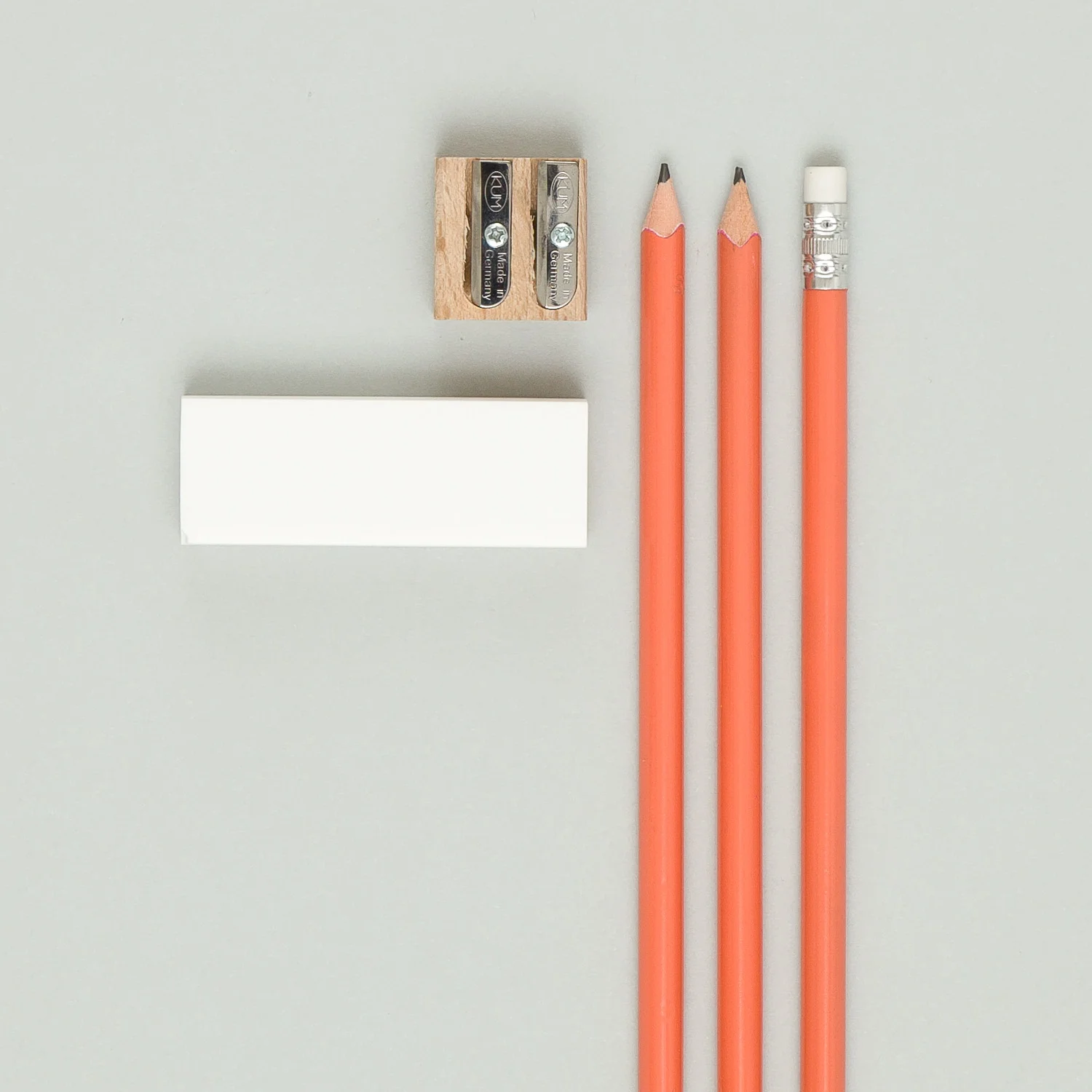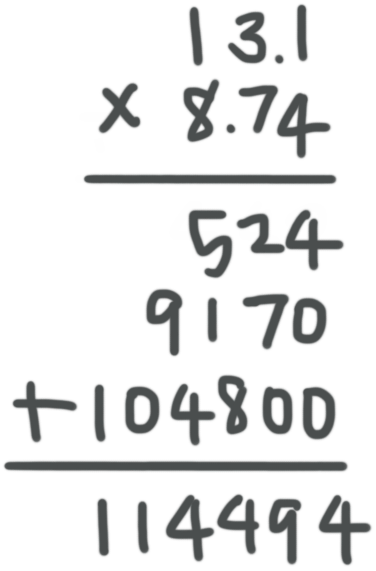How to add, subtract, multiply, and divide decimal numbers
Arithmetic with decimals
We can add, subtract, multiply, and divide decimal numbers.
Addition and subtraction of decimal numbers works the same way as whole number addition and subtraction; we just need to make sure that we line up the decimal points.
Hi! I'm krista.
I create online courses to help you rock your math class. Read more.
How to add, subtract, multiply, and divide decimal numbers
Take the course
Want to learn more about Pre-Algebra? I have a step-by-step course for that. :)
Finding the sum and difference of decimals
Example
Find the sum and difference.
???13.16+8.74???
???13.16-8.74???
To find the sum, we’ll line up the decimal points, making sure that they’re stacked directly on top of each other.
Then we’ll bring the decimal point straight down and add the numbers as usual, starting with the digits in the ones place, carrying anything extra to the tens place, adding the digits in the tens place (including anything extra from the addition of the digits in the ones place), carrying anything extra to the hundreds place, etc.
We can say that the sum is ???13.16+8.74=21.90???.
To find the difference, we’ll line up the decimal points, making sure that they’re stacked directly on top of each other.
Then we’ll bring the decimal point straight down and subtract the numbers as usual, starting with the digits in the hundredths place, borrowing from the tenths place if necessary, subtracting the digits in the tenths place (excluding anything we borrowed for the subtraction in the hundredths place), borrowing from the ones place if necessary, etc.
We can say that the difference is ???13.16-8.74=4.42???.
Let’s try an example with multiplication and division of decimal numbers.
To find the difference, we’ll line up the decimal points, making sure that they’re stacked directly on top of each other.
Example
Find the product and quotient.
???13.1\times8.74???
???13.1\div8.74???
To find the product, we’ll right-align the decimal numbers.
We’ll ignore the decimal points for now, and multiply the numbers as usual.
Now we’ll count the number of digits to the right of the decimal point in each of the two decimal numbers, and then add. There's one digit (a ???1???), after the decimal point in ???13.1???. There are two digits (a ???7??? and a ???4???), after the decimal point in ???8.74???. That’s a total of three digits after the decimal points.
To decide where to place the decimal point in our answer, we start by putting it on the far right of the result, and we get "???114494.???". Then, since we had a total of three digits after the decimal points, we move the decimal point three places to the left to get our final answer. Therefore, ???13.1\times8.74=114.494???.
To find the quotient, we’ll do long division, but not until after we determine where to place the decimal point in our answer.
To figure out where it should go, we need to change both numbers into whole numbers. In order to change ???8.74??? to a whole number, we need to move the decimal point two spots to the right. In order to change ???13.1??? to a whole number, we need to move the decimal point one spot to the right. But we always have to move the decimal point the same number of places in both numbers.
Moving the decimal point one spot will change ???13.1??? to a whole number, but will change ???8.74??? into ???87.4???, which is still a decimal number. So we need to move the decimal point two spots in both numbers, adding a ???0??? to the end of ???13.1???. So ???13.1??? becomes ???1310??? and ???8.74??? becomes ???874???. Then we can do the long division as if we were doing division with whole numbers, instead of decimal numbers.
As you can see, ???8.74??? doesn’t divide evenly into ???13.1???, so we can stop after a few decimal places and just give the estimation as ???13.1\div8.74\approx1.4988???.
If you want to multiply a decimal number by ???10???, you can easily get the answer by just moving the decimal point one place to the right. If you want to multiply a decimal number by ???100???, you can just move the decimal point two places to the right; and so on.
Similarly, if you want to divide a decimal number by ???10???, you can easily get the answer by moving the decimal point one place to the left. If you want to divide a decimal number by ???100???, you can just move the decimal point two places to the left; and so on.





